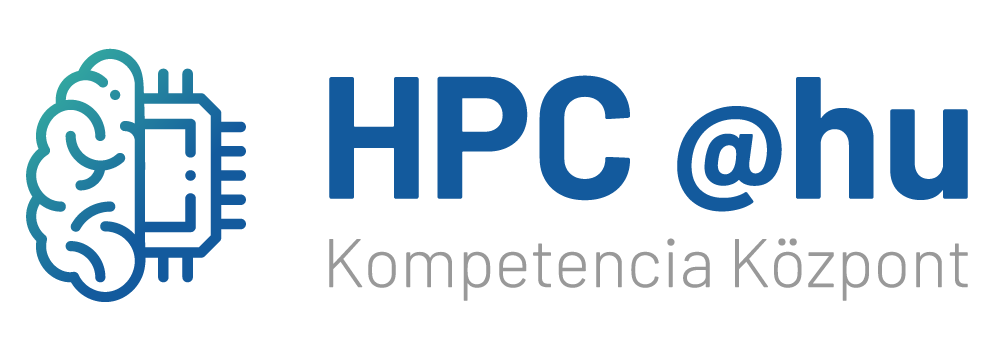HPC in the service of Artificial Intelligence

HPC in the service of Artificial Intelligence
The Hungarian HPC Competence Centre (CC), introduced the members of the Artificial Intelligence (AI) Coalition to the activities carried out by the HPC Competence Centre via an online workshop. Participants could ask questions about the efficient use of the capacities of Komondor – the supercomputer arriving in the near future – and about potential cooperation possibilities
Welcome on board – new users on the HPC horizon
László Mohácsi, the Head of the Competence Centre gave an outline of the objectives of the HPC Competence Centre established in 2020, and then said that the CC wishes to provide as much support as possible to research and development projects requiring HPC resources. He underlined the fact that Komondor would also have a dedicated AI partition, which is superb news for the members of the coalition. In addition to ensuring a Hungarian supercomputer infrastructure which is under constant development and has been available for more than 20 years, another goal is to offer multilevel user support to the users. Thanks to the different of service levels, the academic community will be able to use the resources even more smoothly, and SMEs will also be able to join and benefit from them. The CC defined it as one of its high-priority to organise training events, prepare training materials, and ensure the transfer of practical skills to as many users as possible with as many types of backgrounds as possible.
Next, the audience could hear about the key daily activities of the Competence Centre, the user support practices, and the details of the improvements based on the experience gained from that; then the emphasis shifted to the dissemination of HPC culture. On the one hand, it is important to make as many people from universities and from the academic community aware of the potential of supercomputing; on the other hand, the Competence Centre also needs as much information about projects where HPC may help as possible. Regarding the workshops, training events, and courses, a high priority has been assigned to ensure easy access to the relevant contents and to the practical knowledge related to the use of Komondor during the implementation phase.
In addition to the academic community, the CC also has the mission of reaching out to industrial players. The staff of the CC will contact SMEs that could be potential future HPC users. Since most of them have never used HPC, we will run a pilot project with them using the existing infrastructure so that they can gain indispensable practical experience.
Competences and trainings
Gábor Németh, head of the EuroCC project stated that the HPC Competence Centre operates as an ecosystem in which the composition of the players is rather homogeneous. In order to have a more accurate picture of the needs, they will assess the competences of both the affected organisations and of the Competence Centre. Industrial players can then select what they need from the competence map thus prepared. If a potential partner has special needs for which support or expertise is currently not available, then the CC will provide those through its international relations.
When the program continued, Ferenc Szani, responsible for trainings, presented his vision of the CC as a hub connecting the players and maintaining the necessary environment for that. He said that the Competence Centre is at the level of attitude formation and demand raising, and also talked about the centre providing Open Educational Resources (OERs) including both contents and environments. In addition to describing the draft education plan for 2022 and the higher-level training activities leading up to Komondor, he also stated that the Competence Centre will not only offer its own courses, and that several people are already attending international trainings.
Access to the infrastructure
Bálint Gyires-Tóth, an external expert of the HPC Competence Centre formulated some goals to achieve, including the objective of providing each user with a capacity suiting his or her knowledge and the size of the project. He underlined that the CC wishes to pursue an active dialogue with the research and user communities, and then gave a detailed presentation about the AI partition of Komondor. Next, he addressed the tendering system being formulated – here, the key considerations include expedience and equal opportunities. He expounded on the monitoring results and success rates, for which it would be reasonable to introduce lower- and higher-level TIERs so that access to – larger – capacities would depend on the output of the previous year.
Questions and ideas
During the interactive part of the workshop, the first questions that emerged were of course related to Komondor. Putting this resource into operation as a complete and configured system together with a scheduler is planned to take 60 to 90 days, and users are expected to get access to it in October after the pilot operation is over.
One participant mentioned Ilias, a freely available remote training platform having the great advantage of competence profiling.
Gábor Érdi-Krausz, the head of the AI Coalition work group reported that they are already preparing their opinions and preliminary ratings of the explicitly AI-related project applications received by them. Therefore, the cooperation opportunities with the HPC Competence Centre are already in place given that the professional opinion of the coalition may represent great help when allocating capacities – thus, a preliminary agreement has already been concluded about this. After answers were given to the question related to competence mapping and resource allocation, everyone agreed that the objective is to allocate resources based on a predictable, objective set of criteria, and to make this process maximally user- friendly.
At the end of the workshop, all participants expressed that these discussions should continue in any case – on the one hand, to establish and improve the foundations of knowledge sharing in order to render Komondor as versatile as possible, and on the other hand, to ensure that users start using Komondor after becoming as much prepared for that as possible.
We are looking forward the AI projects that will be supported by the capacitites of Komondor.

